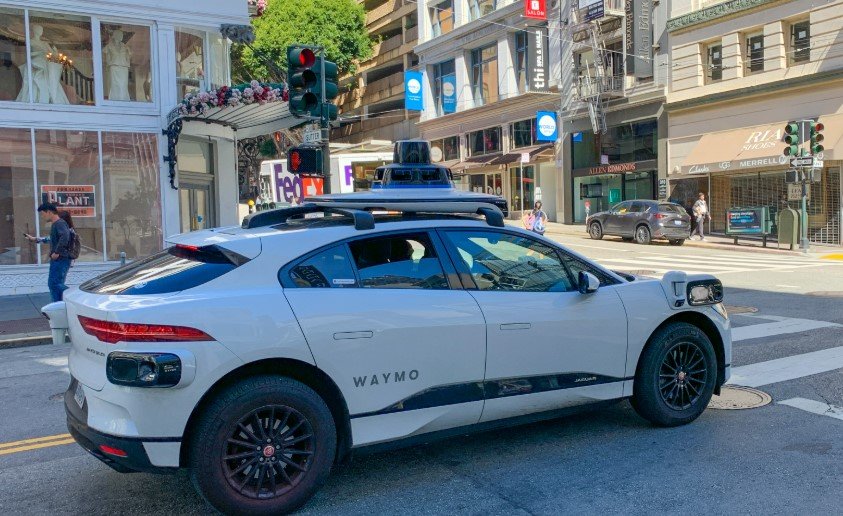Uber and Waymo are bringing driverless cars to Atlanta, and they want locals to start getting excited — and maybe even sign up.
Uber opened an “interest list” this week for Atlanta residents to raise their hands for a ride in one of Waymo’s fully autonomous electric vehicles. This move signals that the self-driving partnership is picking up speed, with Atlanta set to become the second city to offer this futuristic service after Austin, Texas.
Atlanta Becomes the New Frontier for Driverless Rides
If you’ve ever wondered what it’s like to ride in a car with no human behind the wheel, that wait may soon be over — at least for some Atlantans. Uber and Waymo are officially gearing up to bring autonomous rides to the streets of Georgia’s capital.
Atlanta will join Austin as the second launch market for Uber’s driverless service using Waymo’s all-electric Jaguar I-PACE vehicles. No date is set yet, but with the “interest list” now live, the ball is clearly rolling.
Waymo, which is owned by Google parent company Alphabet, has already built out operations in Phoenix, San Francisco, Los Angeles, and now Austin. With Atlanta next on the map, the competition to dominate autonomous ride-hailing is heating up fast.
Uber’s New Approach: Outsource the Driving
A few years ago, Uber had its own driverless dreams. Remember the Pittsburgh trials? That vision is long gone.
Instead of sinking billions into building its own autonomous tech, Uber offloaded its self-driving division in 2020 and started teaming up with companies like Waymo, which has already spent more than a decade fine-tuning its software and mapping systems.

It’s a bit of a pivot: let the specialists handle the tech while Uber focuses on what it does best — connecting riders and drivers (or robots, in this case).
And it’s working, apparently. In Austin, where the service launched just last month, Uber said most users who got the chance to ride with Waymo took it.
What the Rollout Might Look Like
While the full scope of Uber and Waymo’s Atlanta rollout hasn’t been revealed, some patterns from Austin give us a clue.
• All vehicles are fully autonomous Jaguar I-PACEs
• The rides are available through the Uber app just like a standard ride
• Riders can’t specifically request a Waymo car — but if they’re on the interest list, they’re more likely to be matched with one
It’s not a citywide launch on day one. The rollout will likely start in select neighborhoods and expand over time, depending on local traffic patterns, rider feedback, and how the vehicles handle Atlanta’s famously tricky roads (yes, Peachtree Street, we’re looking at you).
Self-Driving Tech: Big Promises, Bigger Investments
The self-driving car industry isn’t exactly new — but it is entering a new phase.
Over the past decade, nearly every major automaker and a swarm of startups have poured cash into autonomous vehicle development. Some have burned out; others have merged, pivoted, or given up entirely. Uber itself dropped its in-house efforts after years of costly setbacks and sold off its Advanced Technologies Group to Aurora.
But Waymo? It’s one of the few players still charging ahead, collecting miles, building confidence, and signing on partners like Uber.
Here’s a quick comparison of some big names and their current status:
| Company | Self-Driving Strategy | Launch Cities | Partners |
|---|---|---|---|
| Waymo | Fully autonomous tech, robotaxis | Phoenix, SF, LA, Austin, Atlanta (coming) | Uber, Alphabet |
| Cruise (GM) | Robotaxi fleet, paused expansion | San Francisco | General Motors |
| Tesla | Driver-assist (not fully autonomous) | Nationwide | Direct to consumer |
| Aurora | Focused on freight | Still in testing | Uber (past), Toyota |
How Do Riders Actually Feel About It?
Here’s the million-dollar question: Are people ready to hop in a car with no driver?
Uber says yes — at least in Austin. While they didn’t share exact numbers, company reps claim the “vast majority” of people offered a Waymo ride accepted it. That’s a strong signal, especially considering how new and unusual this kind of tech still is for everyday riders.
And there are legal limits, too. In some states, driverless cars need backup operators or restricted zones. Georgia has generally been open to self-driving pilots, which makes Atlanta a smart choice for expansion.
What It Means for Uber — and for Atlanta
For Uber, this is about the long game. Labor costs have always been a sticking point in ride-hailing economics. If autonomous cars take off, Uber could eventually cut out one of its biggest expenses: human drivers.
For now, though, this is more of a test. A public trust trial. A marketing move, even.
And for Atlanta? It could be a glimpse of the future of transportation in a city that already faces congestion, sprawl, and infrastructure challenges.
